|
Surprisingly, the hardest part of writing, is not writing. In Amy Poehler's Yes Please, she titles her preface "Writing is Hard". But even as she talks about this, she says she can write a scene or skit in record time. Because putting the words down on the page is not always the most challenging part. It's everything that comes with it, after it, that can be soul-sucking hard. But if you want it, like really want to hold your book in your hands (and yes, e-books count), you have to accept that no matter how easily the words come, there is so much more to writing a story than getting words on a page. E-D-I-T-I-N-GNot gonna lie: EDITING IS HARD. It feels like putting together a 1000 piece puzzle, knocking it over, and starting again. But not being allowed to put the pieces back in the same order you did last time. And maybe not using all of the same pieces. And maybe not even using the same puzzle. Sometimes it's like scrapping the first puzzle, except for the corner pieces, and going with a brand new one. You're not even sure it's possible to do that. Because IT'S HARD. But it's satisfying to see something that you love, a piece of you, become something more, something bigger. Something that elicits all of the feelings in your readers that you meant to. And, rarely can you do that the first time around. Making connections without being annoying I'm still working on this one. I've made so many amazing and wonderful connections and I don't use those words lightly. The people I've met since I started writing are so supportive- offering advice and feedback and direction. I've developed what I know will be lifelong friendships with many people and there are many that I truly hope to meet in real life. However, I often feel like the tag along, the third wheel, the annoying girl who asks a deliberately complicated question in class when the professor says you can go early if there's no more questions. NO ONE HAS MADE ME FEEL THIS WAY. Which reminds me that my biggest problem is that I find myself annoying. I can't get out of my brain and it would likely be awkward if I did. So I annoy myself and then read into every little thing that means nothing and end up annoying myself more. Make connections. Be yourself. Chances are good, most people will like us just fine. Trust them. They're cool people that you admire and they don't have to help you. Most people engage and connect because they want to. And if you're genuine, open, and considerate, there's really no reason that they would find you a nuisance. Unless you're being annoying. Listening to feedback AND ACTUALLY USING IT This is a funny one because I didn't think I was bad at listening to or using feedback. When someone would say that I might want to change something or rethink it, I'd simply tell them why that's not what worked in my story. I listened. I heard. And they were wrong. I have improved in this area. Mostly. It is hard to take feedback and even harder to change things in a story that matters to you. But those people above, that you trust and admire? If they're willing to give you their opinion, listen. If your best friend is an insatiable reader and gets stuck on your plot line and wants you to succeed so therefore mentions it, LISTEN. You don't have to take all the advice or everyone's advice. But you have to be open about accepting constructive criticism if you really intend to grow and actually want to sell your work. If you believe the support group you have wants the best for you, then trust them. But trust yourself too. Ultimately, the story is yours. But if you plan to share it, you have to see it from other points of view. Staying positive I write notes to my daughters on their bathroom mirror every week. Sometimes I use erasable marker, sticky notes, or scraps of paper. Words matter. I love them. So I share them with my girls in this way and many others. This week I wrote, "If you tell yourself you can't do something, you won't. So tell yourself you can." That sounds all poetic and inspiring (and hopefully they're not someone else's words-- if they are, thank you for the quote) but if you were to check my iMessages, Facebook messages, or Twitter direct messages from this week, you would see the irony in ME writing that quote. Because in the last couple weeks, I've told myself repeatedly that I can't. Amy Poehler has a chapter about the plain girl versus the demon. The demon is the voice we all have that makes us feel negative about ourselves. (BTW: this is such an awesome chapter of writing. You should read it.) The thing about that voice is, you have to make them be quiet. They won't all the time, but you at least have to try to talk over it. One thing I realized is that I was measuring my success in the wrong way. Instead of letting all of the things that are happening sink in, instead of truly celebrating, my mean voice keeps telling me all of the things I have not yet achieved. I have a book coming out in April with my co-writer, Kara Leigh Miller. We have a second one coming out later in the year (if she'd just focus-- don't worry, that wasn't mean. She will laugh). And I have a picture book coming out in January 2016. My mean voice shouldn't get to talk for a few months at least. But it interrupts me constantly. We have to not let it. Facing rejection There are thousands of quotes online about failure making you stronger, about great people before you who did not succeed the first several times they tried. Those stories are there for a reason. Instead of getting caught up in the fact that you got rejected, it's time to start asking why. I'm looking back now at a story that I love and was very personal to me. It got lots of attention and several full requests. But it ultimately got rejected. There is absolutely no point in focusing on this detail. Instead, I have to look at WHY and change it. So I'm going to go do that and if it still gets rejected, I have to decide if I want to shelve it for a while. I didn't think I could handle rejection well. But I'm doing okay. It really doesn't break you. If you want it badly enough, rejection will make you fight harder. Except on the days that it just completely sucks and you can't stay positive. Then you turn to those people that have all been there, the ones who will support you and pull you back up. Not too long ago I messaged a lovely writer friend and I didn't even say I was going to flat out quit. I was just being miserable and sad. And her message said: STEP AWAY FROM THE LEDGE. It made me laugh and I thought, not only does she get it (because that's exactly what it felt like) but she's right there. Be that person for someone else. I feel so lucky to have those people that help me face it and move on to be better. And, they make you laugh. That fixes a lot of things. Other than actually putting the words on the page, what is the hardest part for you? sub·jec·tiv·i·ty [suhb-jek-tiv-i-tee] noun, plural sub·jec·tiv·i·ties for 2. 1. the state or quality of being subjective; subjectiveness. 2. a subjective thought or idea. 3. intentness on internal thoughts. 4. internal reality. I never know how much to say about anything because sometimes you learn lessons too late, after you've already made mistakes and I don't like the idea of wrecking something for myself before it even happens. Every rejection letter that you get probably has some variation of the phrase "please continue to send your work out as my opinion is subjective". You try really hard to believe that; to tell yourself, it's just not right for that agent. Sometimes though, it's hard to keep going when that subjective opinion seems to be shared by more than a couple. It's important during the times that you feel like this to reach out to the people that will push you forward. Also, to remind yourself why you write. You also have to keep telling yourself that it really, really, truly, absolutely IS subjective. Even though I let myself believe otherwise last week, here's a look at my week to show you how I was reminded. Monday: a kind letter from an agent saying that I write well but she didn't connect. Okay, I can handle that. I can focus on the "you write well". Tuesday: a "your work isn't right for us" letter. Okay. Fine. Played on Facebook, connected with writer friends to remind myself that this industry is subjective. Was asked to do a review by someone I respect immensely. Okay. Because I can write. Right? Wednesday morning: a "thank you for submitting to us but your work isn't what we're looking for" response to an email I sent YESTERDAY. Wow. Okay. Um. Maybe I need a new hobby? Or I can just read. All the time. Wednesday evening: letter in the mail (like in an envelope and everything) from Blue Mountain Cards. The letter told me that one of the poems I had written had been chosen ("among hundreds") to move onto the next stage. Moral? It really is a subjective industry. Overwhelmingly so. What can you do? If it matters to you, keep going. Keep writing. Connect with other writers because they have the same stories that you do. If you want it bad enough, you have to keep pushing ahead. Remind yourself of what you have done. Write it down and look at it so that the next time you wonder if you don't understand the meaning of subjective, you can read over this list of achievements and feel good. Because regardless of anything else, if you're writing, if you're connecting with other writers and improving, learning to be better, becoming better, then you are succeeding. And eventually, that persistence is going to serve you well.
There are so many things happening around me right now that are out of my control that it feels impossible to sit still and encapsulate how I feel about that fact. Twitter and Facebook have been abuzz with #yesallwomen and I want to weigh in but I'm not sure how to summarize all of my feelings so I basically just read the hashtags all week. Because yes, I think, all women, but I also think, all people. We all have a fundamental stake in being good people. To others and to ourselves. Every day, we should be the kind of person we would want our kids to be proud of, be the kind of person we want them to be. And if you don't have kids, then be the kind of person you'd want to be friends with. The kind of person that you would count on. One of my favourite quotes (ever) is "The only person you should try to be better than is the person you were yesterday." We get a blank slate every day to right wrongs, make better choices, be better people. Women and men. Kids and Adults. All of us.
Something else weighing heavy in my mind is the politics surrounding teaching right now. It's horrible. It's horrible to watch and horrible to be part of. When you become a teacher, you want to work with kids. You want to make someone's life, day, next ten minutes just a little better. You want to see them succeed, get over the hurdles, and achieve their potential. There are a lot of deterrents in that path. There are crowded classrooms, higher needs, budget cuts, and mountains of curriculum. That's not what bugs me though. And no, it's not the wage either. What bothers me is the overall shift I'm seeing that makes me think that people are devaluing teachers. Not all, maybe not even most, but some. Margaret Mead says “Never doubt that a small group of thoughtful, committed, citizens can change the world. Indeed, it is the only thing that ever has." I love this quote and find it quite true. The flip side of it though is that a small group of people committed to making you see the negative can actually create change too. When I was growing up, I loved a lot of my teachers. There is an undeniable bond, for most people, between themselves and a least one teacher in their memory. While we were on strike today, we talked about who that one teacher for us was. For some it was their home economics teacher. Others, it was their Language Arts teacher. For me, it was my high school drama teacher. Whoever it was, it is very likely that you had a teacher touch your life in a positive way. Teachers shape us, spend time with us, watch us grow, notice when we surpass our own expectations, applaud us, push us back up when we fall. When I was little, we studied community helpers: police officers, firemen, doctors, and teachers. They were people you could trust. People that wanted to impact someone else's life in a positive way. We still matter because your kids will always matter. They are the next generation that will make choices based on the core values that we instill in them, together. The last thing that is on my mind is the Book Expo of America. I'm an odd person in that I am intensely jealous of all the wonderful people that I "know" who are there now, walking the aisles with Rainbow Rowell, Neil Patrick Harris, Jeff Kinney, and so many more. I wish I were there. But then I think, what would I do if I were there? Most likely, I would freak a little at the thought of talking to these people. I'd be ultra nervous and quite certain that every wrong word ever invented would come out of my mouth at exactly the wrong time. I would laugh too loud and babble incessantly. Someone who was brave enough to say that yes, they were actually with me, would smile politely and yank on my sweater sleeve, trying to save the poor person I'm talking to. This is why my interaction is better online. The delete button doesn't work in real life. Which brings us full circle-- #yesallwomen, #yesallpeople because the delete button is not an option and we don't know what word or gesture, attitude or comment will impact the person around us, or how. We all matter. It's important that we not only remember that, but teach it to the next generation-- to your children, your friend's child. Manners still matter, thoughtfulness isn't out of date, thinking before you speak never goes out of style. And you really don't understand someone until you've walked in their shoes. So instead, walk beside them, without judgement, and just do your best to keep moving forward. Sorry if this was just straight up rambling, but I did warn you in the title that it was #allthethings It's possible that last summer I may have had a little problem...an addiction of sorts...to all things contest and query related. In fact, there may even have been an element of longing to get noticed or validated. In addition to this, I was also suffering with need-to-write-every-single-second-so-that-I-don't-lose-my-chance syndrome. I believe I caught this from Twitter, where you can find writers galore, contests galore, and constant updates on which writer raked in the good news of the day. Like a good game of poker, it's exciting to be sitting at the table, trying your hand, and seeing if you can stay in the game. It's exhilarating when someone "calls" (or favorites your tweet). There's strategy and technique in crafting the perfect query letter, ensuring that your submission is strong. There's luck in finding the right match for yourself. But there's also the necessity of knowing when to fold. When to back down and realize that the stakes might be 'too rich' for you. It might even be necessary to walk away from the table. Until you're sure you can handle being there. Until you understand that it's not a high stakes, winner takes all game. And until you understand that you, may lose a lot of hands before you finally win.
When you start querying, entering contests, and "showing your cards", you learn what you're made of as a writer (and a person). It is not easy to go from the rush of someone wanting your work to the edge of your seat waiting for them to read it to the hard landing of rejection. It may build character but it also leaves a mark. It is incredibly hard to make yourself understand that they are rejecting your work, not you. Because of course, our work feels like part of us. If you can't face the reality that not everyone is going to love your work, that not everyone is going to want it, or you, even if you thought they might, then maybe you're not ready. Or at least, that is what I learned. I wasn't prepared for the slide down. The attention is wonderful and validating, but the time in between scoops out your self-esteem. And it becomes a cycle. If you let it. If you're writing to prove something or because you think you have to, then you're writing for the wrong reason and it won't be authentic. You have to write because you can't not write. Because it's part of you. If you feel this way, then you'll know, or come to know, that sitting out a round, standing on the edges for a bit, doesn't pull you out of the game. It just lets you breathe. I sat out the last twitter contest and I thought I would be sorry but I'm not. I like the conclusion that I've come to in the last several months: if I slow down it will not make me disappear. If I don't get an agent, it will not make me stop. But if I had entered the contest, when I finally feel like, okay, I can just breathe and write at the same time, I would have thrown myself back into the cycle. And right now, it's not where I want to be. The point is, you have to know what your limits are, what you can handle, and what you can give. This leads me to my second decision. I've decided not to participate in the A-Z challenge, which I think looks incredibly cool. Writing a different blog every day for 26 days is a fantastic way to be motivated, be part of something special, and be creative. And I signed up. I even chose a theme (a good one) and organized my drafts file to get myself ready. But then I asked myself, "why"? I have been welcomed into a small community of gracious, funny, and talented writers. I have a support system and a couple of critique partners that I respect. So was I pushing myself because I wanted to just play one more hand or because I felt that this hand would be a building block for the rest of the game. Right now, my building blocks include co-authoring a romantic suspense novel, waiting on agent responses to another romantic suspense novel, being a critique partner, and writing things that I enjoy. I'm putting less pressure on myself to do it all. It all sounds great...but this is how you burn out. It becomes overwhelming and emotionally exhausting if you push yourself past your limit or worse, if you don't recognize you have a limit. Sitting out and opting out are hard choices as a writer. You feel like, even though everything is moving slower than you ever would have thought humanly possible, there's so much happening around you, without you. And it can become nerve wracking. A friend of mine said this week, "Unless you have an editor breathing down your neck, write for fun or what's the point?" I don't have to spread myself thin trying to be a part of every challenge and every contest. But last summer, I had myself convinced that I did. That if I didn't play every hand, that I'd lose for sure. Really, the only thing I was losing was sleep. And maybe some sanity but that may or may not be tied to writing. In the last year, my writing has become infinitely stronger. But so have I. By taking away the urgency, I've side-stepped the pressure that I was putting on myself. I've stopped telling myself I have to enter everything I can (though I highly recommend many of the fantastic contests and pitching events you can find on twitter). Instead, I'm telling myself to make what I do write, what I do query, the best it can be. In the process of slowing down, finding balance, and gaining some insight, I may even have become slightly less annoying to those who have to put up with me when I get a little too caught up. One of my favorite quotes is below. That's what I'll aim for. As a person and as a writer. I am in no way an expert on anything...like anything at all. But I have learned a few things in the last couple of years that I wish I had known when I started thinking I wanted to get an agent or publish a book. Most of the things I've learned seem like common sense, but surprisingly, in the excitement of getting recognition for something that is so personal, we often forget what we know is just good etiquette. Along with that, I've fallen into a few 'things' that I've been fortunate enough to have far smarter people than I help me navigate my way through. So here's a pieces of not-advice-but-something-like-it from someone who is still finding their way.  image via technorati image via technorati If you wouldn't say it to someone's face, why would you say it online? You would absolutely think that this is just an accepted truth. However, the internet gives us a certain anonymity (or so we THINK) and there are times when people type before they think. Don't do that. 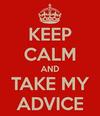 image via keepcalm.co.uk image via keepcalm.co.uk The only way you get better is by listening to the advice of others. Not everyone, but someone. You have to choose a tribe of people that you trust. That you know want what's best for you, will be honest with you, and can handle you at your worst. If you have people like that, who will read your writing and be brutally honest, with the best of intentions, then trust them. At least enough to truly consider what they're saying. 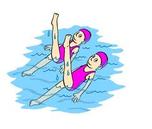 image via picgifs image via picgifs No agent is better than the wrong agent. This one sucks but it's true. These people are entering a relationship with you. Would you go into a bad relationship, JUST to be in one? There was a time I would have said yes, but as you get older, you learn to care more about your own well-being, Writing is no different. You want someone to be your champion and I am completely convinced (most days) that the right agent is going to be worth the wait. 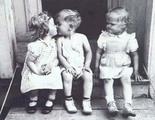 image via examiner.com image via examiner.com As in life, envy gets you nowhere. It's easy to be jealous when you hear an announcement from other writers or from agents you stalk- I mean follow. But the thing is, you don't know their story. You don't know how hard their fight to get to where they are was and most of all, if they got there, then they probably had some pretty phenomenal writing. It's too hard to get somewhere in this world if your writing doesn't rise above. So they deserve it and it doesn't make you deserve it less. And, their success doesn't lessen your chances or your talent.  Go with your own style. I've been trying my hand at plotting and it just doesn't work well for me. For the co-authored book I'm working on, yes. But for my own writing, I just can't do it. At least not yet. I like to get lost in my writing and having to plan it all out first, throws me off track. I can always go back and edit and make plot points along the way. As much as I hate the term, I'm a pantser at heart. That's not right or wrong. It's just what works for me. There's more. There's always more. But that's it for now. Nothing we do is foolproof. There's no list or step by step manual to succeed. There are things you can do to make the ride smoother but basically, you have to do what you should be doing in your life: be who you are, to the best of your ability and hope that good things come to those who wait...politely.
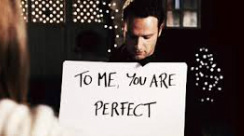 Image from Love Actually Image from Love Actually Christmas is only ten days away. As the Grinch would say, "it's practically here." It's been seven days since I self-published Forever Christmas and I wanted to say thank you to a number of people (it seemed like a good time to show some appreciation) I don't really need to thank my husband and kids because they don't read the blog and also because I do that every day. It sounds something like "Thank you for putting up with me." I'll thank my very best friend in the universe and beyond, Brenda, because she does always read the blog. And while she might point out a missing comma or spelling error, she is endlessly supportive. Not just of this: of everything. Always. I have been fortunate to meet a number of people that have picked me back up where my writing is concerned and perhaps even when it has nothing at all to do with my writing. Those people include Tara Creel, Ruby Knight, Michelle Johnson, Lauren Spieller, Caitlin Rantala, Rachel Pudlek, Katie Bailey, Carolyn Hart, Brandon Jay Mclaren, Brent Mclaren, Brenda Drake, Jessa Russo, Mandy Schoen, Roselle Kaes...there's more. But these are some of the people that have poured over my work for me, retweeted me, supported me, believed in me, and made me feel like maybe, just maybe, I might get somewhere with my words. And if I don't? Well, I'm still pretty lucky. So thank you. And Merry Christmas.  Last year, when I attended the Surrey International Writer's Conference, I was completely oblivious to etiquette, dos and don'ts, and who many of the agents, editors, and authors were. This year, I had a much wider awareness of all of those things and yet, I still feel like I was ill prepared to pitch. Regardless of how much you believe in your writing and your story, it is really hard to sum it up in a couple of lines in front of someone that you've admired from afar and think would be a great fit for your work. So even though I have far more knowledge this year and feel a lot stronger as a writer, I ended up looking like this in front of Carolyn Forde. She had to prompt me to tell her what my story was about and I actually said (out loud), "I don't know what to say to you." Nice use of my ten minutes, I know. Nearing the 8 minute mark, she mentioned that I'd told her nothing about myself. I managed to tell her, without suddenly shouting it like an idiot, that I was going to be published in a Christmas anthology next month through Foreward Literary. She kindly mentioned that sharing your publishing credits is kind of important. And let's not forget that I had the wonderful opportunity of having lunch with the lovely Michelle Johnson of Inklings Literary. She has a full of my work so I can tell you it took some effort not to shameless beg her, but instead, just enjoy her humor and company. This doesn't include my wide-eyed wonder (ok, staring) at being in close proximity to Michael Slade, whose stories, voice and laugh I could listen to endlessly. He just seems like the kind of person you WANT to be friends with. Not me of course, because that would involve carrying on a normal conversation with him that didn't start and end with me telling him, "You're Michael Slade." Cause I'm cool like that. In the end, I did okay. I don't think I embarassed myself too much or scared anyone off. It was nice to meet some of the people I've been chatting with via social media. It was awesome to listen to writers speak and just be in the same room with them. I had an excellent lunch and if nothing else, made a new friend. And I got a request for a full of my manuscript. I may not have been any smoother at pitching or socializing this year, but I appreciate the opportunities that arose much more than last year because I actually recognize them as that.
It would make sense that someone who writes has a plethora of words in their brain, ready to be used in efficient and beautiful ways. This might be true when there is pen and paper or keyboards and screens involved but, for me, when it is time to be verbal, it would seem I have run out of words. Several times, just today, I have had sentences go like this: While cleaning today, I got upset with my kids twice (or twice x a lot) because they weren't following directions. They answered, "But you said _______!" To which I would then reply, "But that's not what I meant!" Why don't they know what I meant to say? And why can't I say what started out sounding normal in my brain? If you're lucky, you have people that "get" you. They understand what words need to be used in the blanks or when you say the exact opposite of what you really need to say. My best friend calls this "speaking fluent Jody". The more I write, the more important it seems for people to start understanding the language I now speak: the language where I used up all of the good words in my writing and am now left with a very tiny word bank. This bank mostly consists of "um", "you know", "but", "huh?", "uh".
While this might seem amusing, consider my predicament when I'm trying to get my way with my husband or trying to prove to someone that I am, indeed, quite educated. Not easy. Especially since very recently, my verbal genius included pronouncing "ruching" as "rush-et-ing". Yup. As I said, despite having many of them written on paper, there, really, are no words. Tell me I'm not alone with my inability to form complete sentences when I need to speak aloud. What's the funniest mispronunciation you've heard or said? Keep Calm and anything doesn't really suit my nature. I mean it when I reply to people who tell me, inanely, to 'relax' that "this is me relaxed". My brain works on overdrive all the time. A situation that would bring a few questions to mind for most people, generates hundreds of questions in my head. So, as you might guess, waiting patiently is not my thing. I think maybe, in some alternate universe where I try to see the good side, having to wait for answers about my writing is a good thing for me. I'm slowly learning that everything does not need to happen RIGHT NOW. My friend sent me a beautiful quote that, oddly enough, did making me relax a little. I always feel like I just have this short window of opportunity to start and complete something but this a self-imposed window. I box myself in by creating deadlines or telling myself that I have something to prove. This works against you in writing. There is no time limit here and this needs to be remembered. Also, it's true when you're told that this is a subjective business. So far, for my current query, I've had a few "it's not right for me" but "perhaps another agent", rejection letters. It is hard to have someone turn down something that matters to you. In fact, I sent my best friend and husband a text earlier this week that said something along the lines of: I don't want to do this anymore. I can't keep sending my work out there. I, with my inability to WAIT for anything, got a little down when I entered a very cool pitch contest on Brenda Drake's website and had no immediate responses. I felt that if I got some requests, I should keep going, but if I didn't, I should take a break. Here's the important thing though: I can't take a break from writing. The words and characters won't stop forming in my head so, in the end, whether I get published or not, if my work is requested or not, it's part of who I am. Keep calm? I have to write to do that. I have a tendency to obsess and need immediate results. This is not a good combo in the writing world. Fortunately, I have a strong support system that is used to me, ignores my defeatest texts, tells me to take a breath and doesn't mock me, too much, when I send a follow up text about an hour later that reads: Disregard last text. Just got a request. Still bring pop, please. Actually, I got three requests from the "Pitch Party" and I am thrilled and excited and feel like I'm starting at the bottom of the roller coaster, again. However, I think it was a good little learning curve for me because it reinforced what I've already said: you have to write for you. It's where your best writing comes from. You have to be willing to listen and accept feedback and critiques AND rejection. If you decide to pursue the path to being published, you have to be willing to move forward, fight for it, get your writing out there and understand that it is a subjective business. It's like anything in life, I suppose, you have to really want it and the harder it is to get, the more you'll appreciate it when the good moments come.
Last week I wrote about how I started my journey of "professional" writing. If you missed the first one, just scroll down to last week's blog to catch up. The middle When I ended last week, I told you I had a scheduled blue pencil session and a pitch session. Common sense helped me pick who I wanted to sit down with: I looked through the lists of authors and agents and chose people that worked with or represented what I'd brought with me to the conference. Sometimes, as I did with Tanya and Carly, you take what you read about them and then just go with your gut. Before I tell you how my sessions went, I'll point out what I should have done to be more prepared. When I think about what I didn't know when I attended, I realize how lucky I am to have been successful. What I should have known before I went:
So, what was it like?
What came next? The biggest part of this whole process: the waiting. There is a lot of waiting in this industry. So I tried, unsuccessfully, to pretend that it didn't matter if Carly emailed. I was surprised by how much being surrounded by writers and books inspired me to write. Since I came home from the conference, I have not stopped doing three things: writing, reading, and waiting. So how did it end? Not that the journey is over but what was the result of going and putting my writing out there for others to read? While you may think you know what I will write in next week's third and final blog in this series, I can promise you, you do not. Even I did not know how this particular journey would end until this week. Where am now in my journey? What's it like to get the phone call from an agent who wants to represent your work? How can you prepare for that phone call? You'll have to come back next week and read the third in this three part series to find out! What stage of your writing journey are you at? What do you find most difficult?
|
Archives
May 2021
Categories
All
|

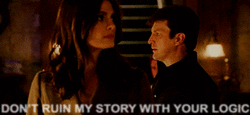
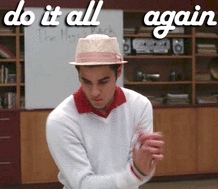
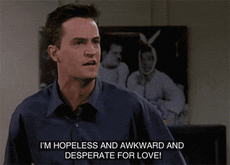
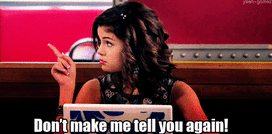
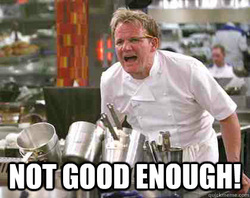
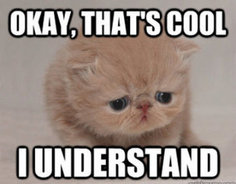
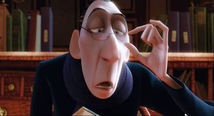
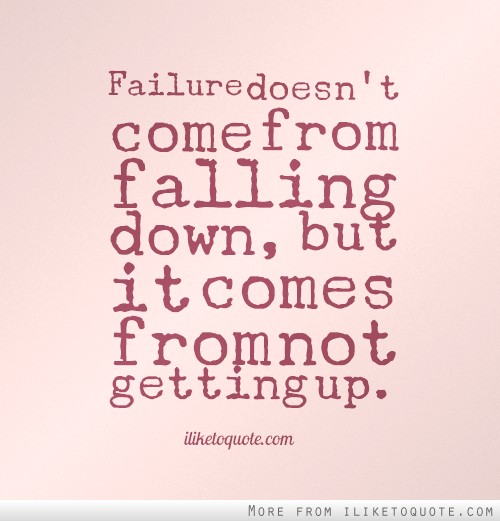
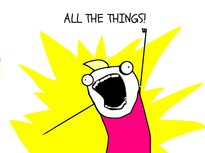
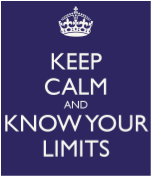
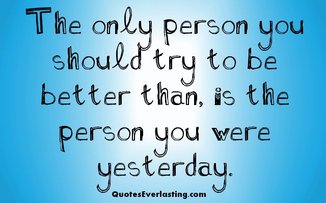


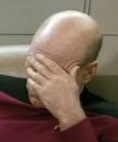
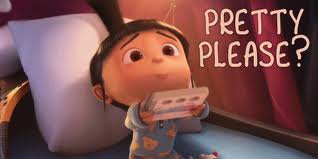
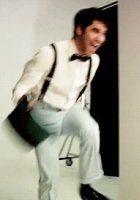
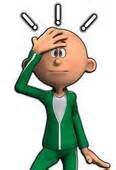
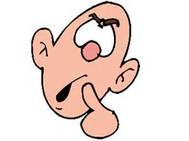
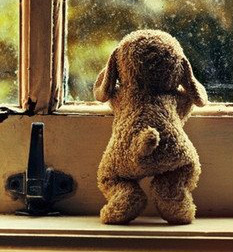
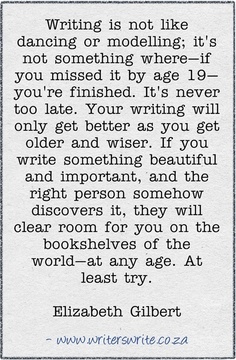

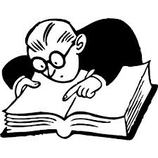
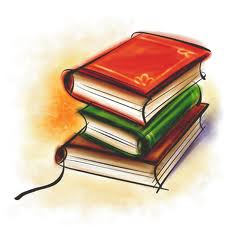
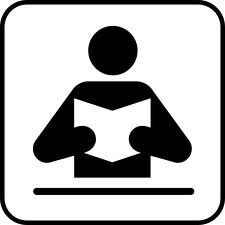
 RSS Feed
RSS Feed
